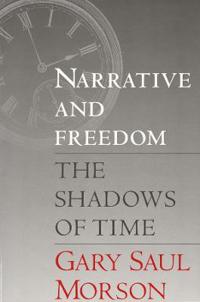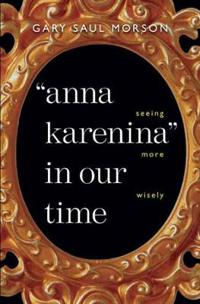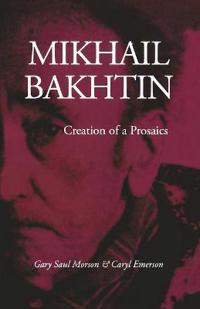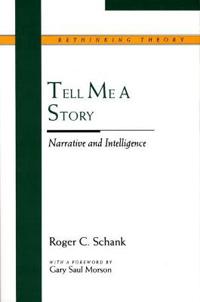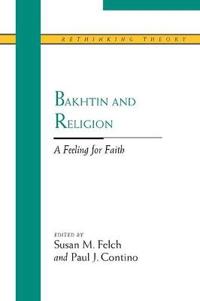Narrative and Freedom (Pocket)
avGary Saul Morson
ISBN: 9780300068757 - UTGIVEN: 1996-09In this important and controversial book, one of our leading literary theorists presents a major philosophical statement about the meaning of literature and the shape of literary texts. Drawing on works by the Russian writers Dostoevsky, Tolstoy, and Chekhov, by other writers as diverse as Sophocles[...]
Anna Karenina in Our Time (Inbunden)
avGary Saul Morson
ISBN: 9780300100709 - UTGIVEN: 2008-01In this invigorating new assessment of "Anna Karenina", Gary Saul Morson overturns traditional interpretations of the classic novel and shows why readers have misunderstood Tolstoy's characters and intentions. Morson argues that Tolstoy's ideas are far more radical than has been thought: his masterp[...]
Mikhail Bakhtin (Häftad)
avGary Saul Morson
ISBN: 9780804718226 - UTGIVEN: 1990-10Books about thinkers require a kind of unity that their thought may not possess. This cautionary statement is especially applicable to Mikhail Bakhtin, whose intellectual development displays a diversity of insights that cannot be easily integrated or accurately described in terms of a single overri[...]
Anna Karenina (Inbunden)
avLeo Tolstoy, Marian (TRN) Schwartz, Gary Saul (EDT) Morson
ISBN: 9780300203943 - UTGIVEN: 2014-11Tolstoy produced many drafts of Anna Karenina. Crafting and recrafting each sentence with careful intent, he was anything but casual in his use of language. His project, translator Marian Schwartz observes, "was to bend language to his will, as an instrument of his aesthetic and moral convictions." [...]
Tell Me a Story (Pocket)
avRoger C. Schank, Gary Saul (INT) Morson, Roger C. Schank
ISBN: 9780810113138 - UTGIVEN: 1995-12How are our memories, our narratives, and our intelligence interrelated? What can artificial intelligence and narratology say to each other? In this pathbreaking study by an expert on learning and computers, Roger C. Schank argues that artificial intelligence must be based on real human intelligence[...]
Bakhtin and Religion (Pocket)
avSusan M. (EDT) Felch, F. J. (EDT) Contijock, Gary Saul (EDT) Morson
ISBN: 9780810118256 - UTGIVEN: 2001-09Among the interpretations of the work of Mikhail Bakhtin, none has been as fiercely contested -- or as willfully ignored -- as the dimension of religion in his life and work. Unique in its in-depth focus on this topic, Bakhtin and Religion brings together leading British, American, and Russian schol[...]

